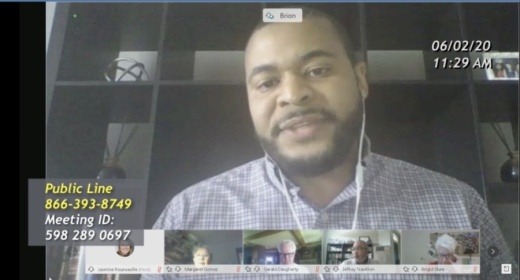At a June 2 Travis County Commissioners Court meeting, Austin Equity Office representatives presented their own coronavirus response efforts to commissioners and requested support in several remaining objectives to expand testing access, recovery efforts and workplace protections for vulnerable demographics—including Travis County’s black and Hispanic populations, which have demonstrated higher rates of coronavirus-related hospitalization and death compared to white residents.
“We know that if we don’t really intentionally center communities of color in economic recovery efforts, they can get left behind. Our history tells us that,” Chief Equity Officer Brion Oaks said.
That history includes a shortfall of Federal Emergency Management Agency funding for black victims of natural disasters compared to their white counterparts, according to Austin Equity Office Business Process Consultant Kellee Coleman. Coleman pointed to a 2019 study by National Public Radio which showed that white households benefited more from FEMA’s financial recovery efforts than black and Latinx people living in the same areas.
“Even in disaster recovery, there is inequity,” Coleman said.
While Travis County has already committed that CARES Act funds will be administered “with an equity lens,” in the wording of Commissioner Brigid Shea, there are several areas in which Oaks still requests support, including in testing accessibility.
“We’re also really concerned about the issue of transportation connected to some of our drive-thru testing sites, and understanding that we have many people in our community that are [in] zero-car households, or they don’t have access to closed vehicles, which are the requirements that you need to be able to do drive-thru testing,” Oaks said.
To that end, the Austin Equity Office is working with other COVID-19 response leaders to develop site-based mobile testing in high-risk communities, he said. Furthermore, Oaks said his office wants to seek data on which minority neighborhoods are engaging with testing already and which are not.
“The one data point that we’re missing that is going to be crucial to us is that we need demographic data on who gets tested, period. That’s important for us because we don’t really have a baseline right now to see if our communities of color are really getting tested at the rate that we need,” Oaks said.





